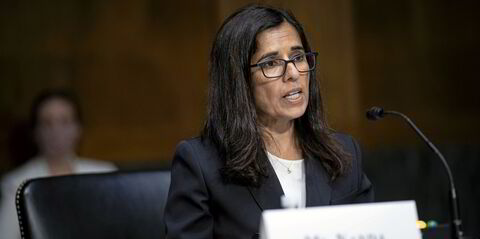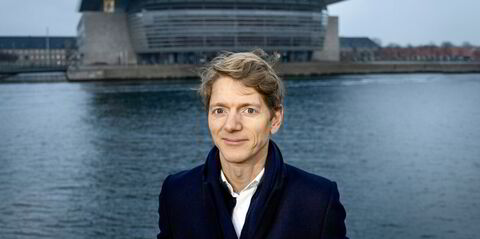With four of the top 10 shipowners by fleet size and three of the top 15, Japan is a powerhouse in the industry and greening its fleet will be key as shipping faces pressure to decarbonise.
But the big three Japanese shipping companies — NYK Group, Mitsui OSK Lines and K Line — are not shying away from that challenge.
The Tokyo-listed trio have staked out leadership positions on green fuels, greenhouse gas targets, and environmental, social and corporate governance matters known collectively as ESG.

For example, MOL and NYK are among the top three shipowners and operators on ESG scores by Sustainalytics.
In the latest scorecards from CDP, formerly known as the Carbon Disclosure Project, NYK and K Line were the only shipping companies to receive an A grade.
And Green Seas has reported on how long before the Science Based Targets initiative was even ready for shipping, those two companies had their decarbonisation goals verified for a trajectory aligned with halting global heating at 2C, though they will have to reapply now that SBTi is focused on a 1.5C pathway.
My colleague Adam Corbett was at our TradeWinds Shipowners Forum Tokyo this week, where decarbonisation targets were a key theme. His coverage of the event is among the stories in this week’s newsletter.
_______________
Japan plays a ‘team game’ to reach zero-emission goal
Cooperation is the key to national maritime decarbonisation projects in Japan, key industry players told the TradeWinds Shipowners Forum Tokyo this week.
Jigo Hayashi, joint general manager of ship finance at Tokyo Century Corp, said banks have a key role to play as Japan’s maritime cluster attempts to deliver decarbonisation solutions.
“It’s a collective effort, a shipbuilder cannot have a one-ship solution for everything,” he said.
“Shipping is a very capital-intensive industry and we need green financing for risk-taking areas like R&D and retrofitting, risk money must come from somewhere, it’s a team game.”
Jun Kohno, deputy director of engineering affairs at the Ministry of Land Infrastructure Transport and Tourism, said the Japanese government has already stepped in with ¥35bn ($232m) of funding over the next 10 years to support the development of a zero-emission ship.
Click here to read the full story.
_______________
Next three years are ‘critical’ in the race to decarbonise, says MOL’s Hashimoto
Mitsui OSK Lines chief executive Takeshi Hashimoto has urged shipowners to take advantage of a “special time” in the industry to commit to decarbonisation through investment.
Speaking at the TradeWinds Shipowners Forum Tokyo this week, Hashimoto described how he is steering the company’s giant 800-ship fleet to net-zero emissions by 2050.
He said the decarbonisation challenge comes just as MOL has benefited financially from the post-Covid container ship market boom.
“It is a special time for us,” he said.
“We recognise the world is rapidly changing and promoted a feeling in our organisation that we are behind the global change.”
Click here to read the full story.
_______________
Podcast: The ‘two Os’ that can help shipping cut greenhouse gas emissions now
Ships tend to speed up to get to their destination and then wait in port queues, wasting fuel and leading to unnecessary emissions.
Two inter-related words that start with “O” offer a solution: optimisation and operational efficiency.
But while both can reduce shipping’s carbon footprint with today’s technology, shipping’s complexities create barriers to change.
After recent developments on both fronts, the Green Seas podcast explored the “two Os” with Cargill Ocean Transportation global operations director Eman Abdalla and Alpha Ori Technologies co-chief executive Rajesh Unni.



